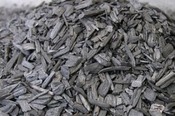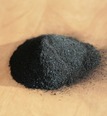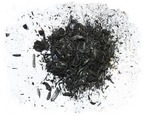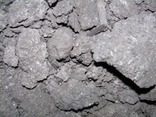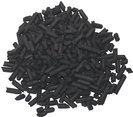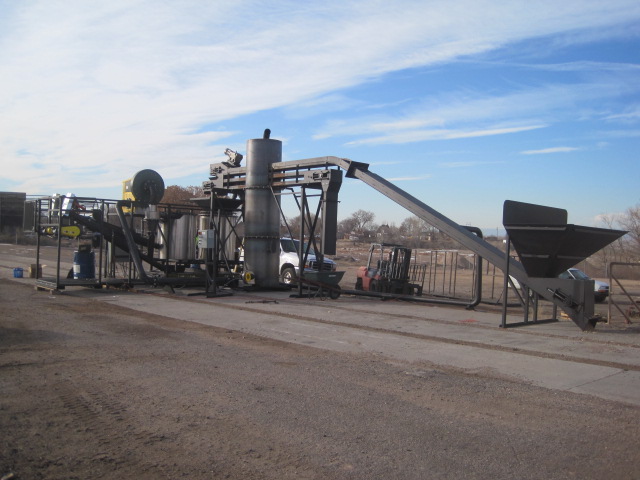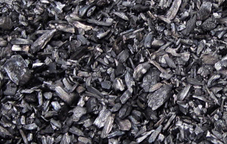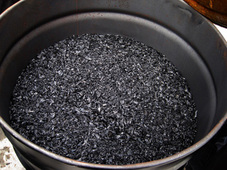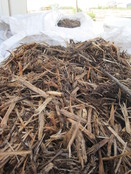All Biochar Is Not Created Equally
There are many carbonized products offered for sale under the generic "biochar" label. At present, the industry lacks broad standards that rank biochar by quality, origin, sustainability, or actual carbon negative value. The International Biochar Initiative is currently developing a standards protocol to offer biochar consumers consistent information and transparency when making the decision about what biochar to purchase and how to use it. Until such standards are widely adopted, consumers are urged to use caution when purchasing and using generically labeled "biochar" products.
|
The Biochar Solutions B-1000 Thermal Conversion System
The B-1000 Thermal Conversion System is capable of processing upto 500-pounds of dry-biomass per hour into 120 pounds of biochar and 1.8M BTU’s of process heat. The B-1000 Thermal Conversion System is operated under optimal conditions to produce biochar that has enhanced adsorption and absorption properties, high fixed carbon, and high surface activation. Multiple units can be run in parallel to increase throughput per labor cost.
|
|
Biochar from the B-1000 Thermal Conversion System
Biochar produced from the B-1000 Thermal Conversion System is NOT a residual ash/carbon co-product. The Biochar Solutions Thermal Conversion System is designed to manufacture a consistent, clean, and high quality biochar as the MAIN product. Bioenergy is a byproduct of our biochar manufacturing process. The biochar materials produced from our equipment are designed to be reclamation grade soil amendments, and are characterized, handled, priced, and packaged accordingly. |
|
Wood residues are commonly used to manufacture our biochar.
|
|
The Biochar Solutions Thermal Conversion System is a clean, affordable, continuous process, and robust technology platform that is optimized to make biochar from forest by-products.
Our units are suitable for converting forest waste into biochar for university and government research; land reclamation research and development; pine beetle kill remediation; forest fuel management; agricultural soil fertility improvement; high value horticulture; turf grass water and nutrient management; and eventually carbon credits.
Our units are suitable for converting forest waste into biochar for university and government research; land reclamation research and development; pine beetle kill remediation; forest fuel management; agricultural soil fertility improvement; high value horticulture; turf grass water and nutrient management; and eventually carbon credits.
